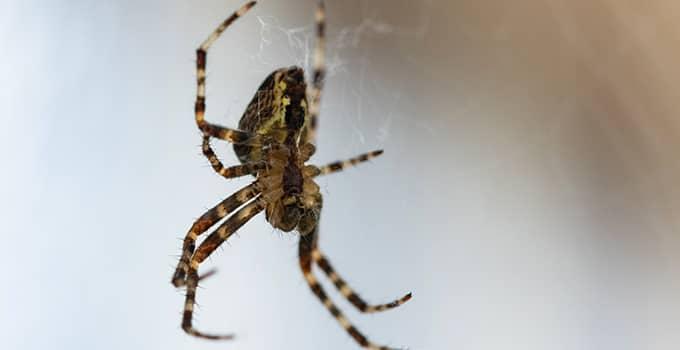Stinging insects buzzing around your home or business can be a sign that there is a beehive or wasp nest somewhere on your property. Whether it is in the eaves, behind siding, in a tree, or a discarded or unused item sitting on the property, stinging insects will make use of just about anything that can provide shelter.
When stinging insects invade your property, a stinging insect control plan must be put into action. At Schendel Pest Services, our experienced staff take on the task of efficiently and safely removing unwanted hives and nests.
What Attracts Bees?
Structures and materials that can provide shelter for the hive attract bees. This can include miscellaneous items like hollowed-out tree limbs, equipment and machinery on the property and unused garbage cans. If the property has had a previous problem with bees and the hive was not removed, it can attract new swarms looking for shelter. If any remnant of a honeycomb is left in place, the lingering pheromone scents will also attract new bees to your property.
What Attracts Wasps?
Wasps have an attraction to a variety of things, especially anything sweet. Some attractors found in the yard of a home or the landscaping of a business include flowers, fallen fruit from a tree, compost, and insects to feed on. They also look for warm spots where they can construct a nest. If they smell open food containers and open canned or bottles, these will draw their attention.
Professional Services vs Do It Yourself
Although there are many over-the-counter products on the market focused on stinging insects, it is always best to let trained professionals handle the job. Both pests will attack whenever they feel the hive or nest is in danger, and the collective population and community is in jeopardy.
Honey bees, for example, will attack if they are constantly disturbed while they are outside the hive. Honey bees also react negatively to dark colors and vibrations. They will also continue their attack by pursuing a person or animal that has set off their defense alarms up to a half mile before calling off the pursuit.
Wasps, on the other hand, attack strictly as a means of defense. If they feel threatened for any reason, they will sting the intruder multiple times. If standing near a wasp nest, something as simple as a sudden move can instigate their defense mechanism, and they will react by stinging.
For many individuals, the sting is a painful reminder of their interaction with a bee or wasp. For others prone to allergic reactions, a sting or multiple stings by wasps may cause the person to go into anaphylactic shock and require immediate medical assistance.
Our Stinging Pest Control Services at Schendel
When our technicians arrive, you rest assured knowing that our team is trained to safely remove, relocate, and treat the area from start to finish. We follow specific guidelines whenever our staff is at your home or business, and only use EPA approved materials and current methods to ensure residents, pets, customers, and employees are not put in harm’s way.
Before applying any products or processes, our service technicians will explain the process and any steps you may need to take to support safety measures.
With our PestZero Guarantee, our residential and commercial customers do not need to worry. Our trained staff will find the source of the hives or nests and create an effective plan of action to remove stinging insects from your property. If they return to your property after the treatment, we will dispatch our technicians to take care of the problem.
To continue regular service throughout the year, Schendel offers the Premium Care and Premium Care + Plus pest control programs to keep your property free of pests. Our technicians initially provide service to the interior and exterior then provide quarterly visits.
Taking the Sting Out of Your Home or Business
Don’t let stinging insects take over your home or business. Reach out to the professionals at Schendel Pest Services for wasp and bee control. When you contact us, either by phone or by filling out our online form, in most cases, we can have a technician at your property either the same day or the next.
Stinging Insect Control in Kansas, Missouri and Arizona
Serving Kansas, Missouri and Arizona
Topeka, KS | Wichita, KS | Lawrence, KS | Springfield, MO | Gilbert, AZ
Schedule Your Free Inspection
Residential Services

Termite Control

Mosquito Control

Bed Bug Control

Mole Control

Pest Control Insulation
Recent Blog Posts

How To Keep Your Arizona Home Pest-Free This Spring
How To Keep Your Arizona Home Pest-Free This Spring 3/28/2019 With the return of spring comes the return of spring time pests. Whether you end up with only one or…

How Are Spiders Getting Into My Home?
How Are Spiders Getting Into My Home? 2/15/2019 How Are Spiders Getting Into My Home? Have you ever stopped and wondered to yourself how the spider running across your bathroom…




